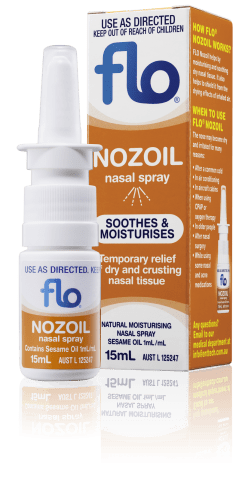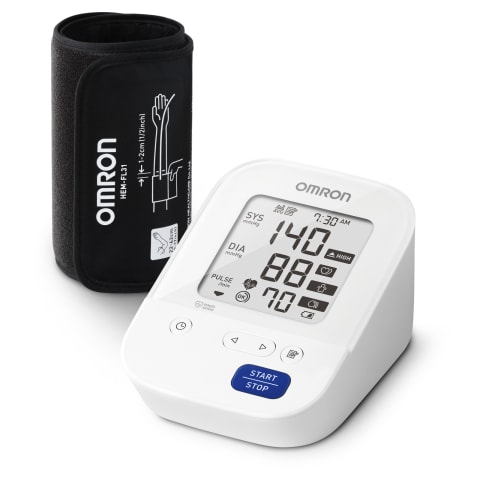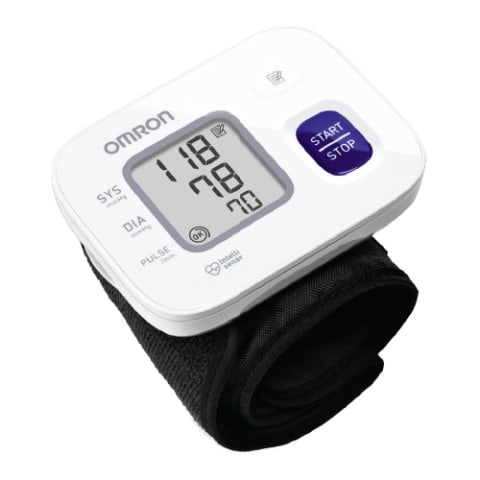Home Monitoring
Sove CPAP Clinic is proud to offer a range of home monitoring devices to help you look after your health from home. Our range includes blood pressure monitors, oximeters, and thermometers, from high quality brands like Omron and Heart Sure.
If you have any questions about our home monitoring range, or need assistance, please contact one of our friendly consultants on 1300 76 29 39 or email us at info@thecpapclinic.com.au
Our website provides general information only. Please speak with your doctor if you have any health concerns.
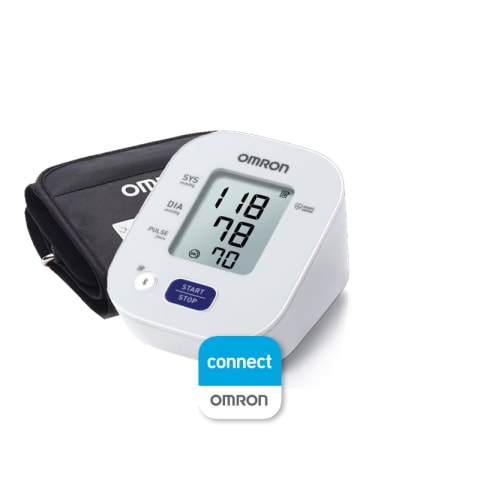 Omron HEM7142T1 Standard Automatic Blood Pressure Monitor
Omron HEM7142T1 Standard Automatic Blood Pressure Monitor
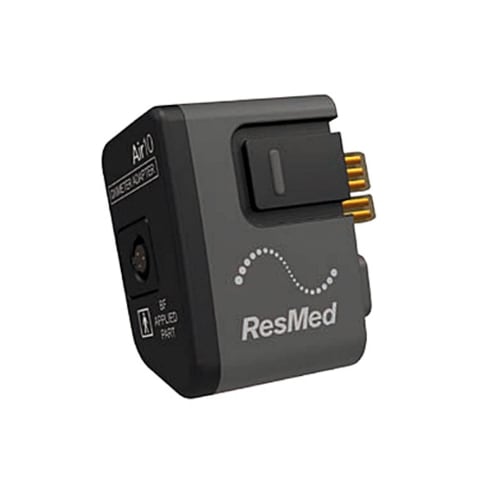 ResMed AirSense 10 Series Oximetry Module/Adapter
ResMed AirSense 10 Series Oximetry Module/Adapter
Sove CPAP Clinic is passionate about providing affordable healthcare products and solutions. With cutting edge technology at your fingertips, you can make more informed decisions about your health with our range of Omron Blood Pressure Monitors, pulse oximeters, thermometers and more.
What is blood pressure?
Blood pressure is what it sounds like - the pressure of the blood in your arteries. We measure blood pressure by two points: systolic pressure, when your heart muscle has just contracted, and diastolic pressure, when your heart is in-between beats. Your blood pressure is reported as the systolic pressure over the diastolic pressure, ie 120/80 mm Hg.
What is a healthy blood pressure?
In general, any blood pressure between 90-120 systolic pressure (top number), and 60-80 diastolic (bottom number) is considered normal. If your blood pressure is above 120/80mm Hg, consult with your doctor. However, be aware that your blood pressure fluctuates throughout the day depending on your position, breathing, stress levels, medication, what you've consumed and even the time of day.
Should I use a home blood pressure monitor?
If you have high blood pressure, checking your blood pressure regularly with a home blood pressure monitor can give you valuable insight into how you are managing your hypertension. Your blood pressure can also change day to day, or even at different times of day - checking it at regular intervals can give you a truer picture of your blood pressure. For some people suffering from 'white coat syndrome', having a home blood pressure monitor can help them get accurate readings outside of their doctor's office. Ask your doctor whether you can benefit from a home blood pressure monitor. If you have been recommended to take regular blood pressure readings at home, an Omron home blood pressure monitor is a reliable and great choice. Most blood pressure monitors also measure your heart rate.
What is a pulse oximeter?
A pulse oximeter measures two things: your heart rate (the number of times your heart beats per minute) and the oxygen saturation level in your blood. The oxygen saturation level in your blood refers to the percentage of your red blood cells which are carrying oxygen. Most pulse oximeters clip onto your finger, and measure these things by shining light through your finger. Some pulse oximeters need to be connected to a machine, including pulse oximeters designed to be used with CPAP machines, but a wide range are wireless. If you are looking for a wireless pulse oximeter, try the Heart Sure Pulse Oximeter.
What is a healthy heart rate?
A normal resting heart rate for most adults sits between 60-100 beats per minute. However, your heart rate will vary significantly depending on many factors, including your stress levels, activity levels, position, temperature and medication.
What is a healthy oxygen saturation level?
95% and higher is generally considered a normal oxygen level. If your oxygen level is below 95%, call your doctor. Those suffering from chronic conditions such as sleep apnea, asthma, chronic obstructive pulmonary disease may experience lower oxygen levels due to their condition.
Should I use a pulse oximeter?
A pulse oximeter is a useful tool to see your heart rate and oxygen levels. This can be useful to see how your pulse and oxygen changes before and after exercise, but is also very important for people suffering from chronic conditions which affect their oxygen levels. People with sleep apnea, asthma, chronic obstructive pulmonary disease (COPD), and heart disease may need to monitor their oxygen saturation as it may be lower than normal. Monitoring oxygen levels may also be important to see if your treatment is effective. If you are using supplemental oxygen, including anyone using a portable oxygen concentrator, a pulse oximeter can be very useful in showing your current oxygenation levels.
Telehealth options for home
One of the best ways you can now monitor and work on your health from home is through telehealth services. Now, there's no need to make a long trip out to a doctor or specialist - you can consult them from the comfort of your home. Sove CPAP Clinic in partnership with Centurion Healthcare is proud to offer a range of telehealth services, including Respiratory and Sleep Specialist telehealth, Cardiology Specialist telehealth, and CPAP consultant telehealth consults. Our medical team is here to help you live your healthiest life, whether you are struggling with sleep apnea, heart disease, COPD or other conditions. For more information, give our Centurion Healthcare line a call on 1300 46 90 83.








